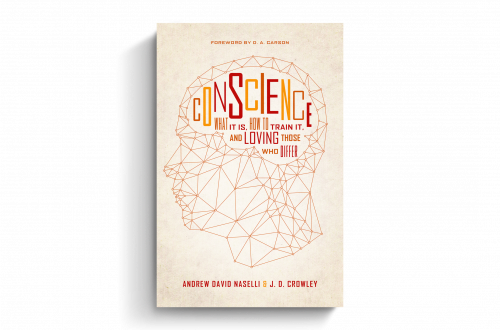Does God permit divorce? Not all evangelicals agree on what the Bible teaches on this question. David Instone-Brewer has written a scholarly book on the subject, but his recent article in Christianity Today has stirred up some conversation in the blogosphere. Instone-Brewer argues that God allows for divorce in cases of adultery, abandonment, and physical/emotional neglect. John Piper has responded that Instone-Brewer’s conclusions do not faithfully render the Bible’s teaching. Piper also argues that divorce is not allowed under any circumstances. Andreas Köstenberger responds to both of these articles arguing that Jesus permitted divorce in cases of adultery and abandonment.
I’m not going to rehearse all of the arguments here. You can read them for yourself, and I recommend them to you.
Round 1
David Instone-Brewer – “What God Has Joined” (Christianity Today)
John Piper – “Tragically Widening the Legitimate Causes of Divorce” (desiringgod.org)
Andreas Köstenberger – “Clarifying the NT Teaching on Divorce” (biblicalfoundations.org)
Round 2
David Instone-Brewer – “More from David Instone-Brewer on divorce”






9 Comments
jeremy z
I enjoyed reading the cases in round 1. Both Piper and Brewer present a great argument.
Piper stated: “The world we live in needs to see a church that is so satisfied in Christ that its marriages are not abandoned for something as amorphous as “emotional neglect.—
He is right because if I recall correctly the Christian divorce rate is higher than the secular divorce rate.
I would argue that Christians are a lot more anxious to get married. Therefore, we will hurry a marriage because God told me to marry you. The problem is only because one is a Christian does not mean you need to get married and get married right away.
Come on we all have heard the typical Christian dating story where both of them read kissing dating goodbye and they were only courting for 4 months before getting married.
Essentially I am arguing that Christians are more likely to hurry into marriage.
mlm
JZ: You’re right. Many hurry into marriage because they’re in a hurry to have “legit” sex. Typically, couples spend 300 hours preparing for the WEDDING and about 3 preparing for the MARRIAGE. Another reason Christians divorce is because of our immense preaching on grace and God’s forgiveness. People tend to think “God will forgive me,” so they go ahead and divorce.
Bryan L
Actually I don’t think the divorce rate is higher in the church. I remember reading recently that that is somewhat of a myth and based on faulty data or methodology. Anyone else see that article/study?
Blessings,
Bryan L
jeremy z
According to the Barna Research group: the divorce rate is the same between unsaved and saved people.
http://www.barna.org/FlexPage.aspx?Page=BarnaUpdate&BarnaUpdateID=170
Let me see if I can find that article I read back in May discussing that Christian’s have a higher divorce rate.
jerry bishop
As a pastor who agrees with Piper, it can get kind of lonely. Although, I did meet another pastor in my area with similar views. He thought the same thing. I, too, think Barna’s stats are wrong. Genuine believers are more likely to marry while others cohabitate without marriage. This would inflate the number of divorces per 1000 for believers quite a bit. Also Barna’s definition of “believer” is so weak that it would also not give a clear picture.
Paul
what’s funny in a highly sick and disturbing way is the way that people dance around the issue of abuse as it pertains to divorce. I think I even read somewhere last week that the proper Christian mindset should be for the wife to just deal with it and pray.
At least Kostenberg mentions separation in order to stop the abuse. But then, I think he forgets that such a separation rarely works. Men who beat their wives need to be in jail, not given a free ride by preachers with blogs trying not to widen the grounds for divorce (Kostenberg’s words).
If these men of God can’t just stand up and say “if you’re in danger, then get out!” then I don’t want them teaching me how to tie my shoes, much less interpret the word of God.
Pingback:
Wesley
Paul, it’s possible to hold to both a narrow view of divorce and prevent abuse. My take would be to see it as a moral conflict between protecting the innocent and preserving a marriage. Both are commanded by God, but when two commands come in conflict (I got the principle from Geisler) we opt for the “greatest good”. In those cases of abuse, the greatest good would be to protect the wife by allowing divorce. Both are still sins, but when one only has the option of two sins, you pick the greatest good and the lesser sin is not held against you.
Another way to see it may be re-shifting marriage into the Church, as opposed to the state. In this case, the husband and wife can get a legal divorce to protect the wife, but as far as the church is concerned she is still married. I would ague that this is possible because a marriage theologically and a marriage legally are not always the same. So to with divorce, the state may consider them divorced, and so protect the wife, but theologically she is considered married for purposes of remarriage.
Between the two, I still prefer the first option, but the second would be acceptable as well.
Pingback: